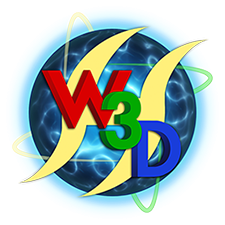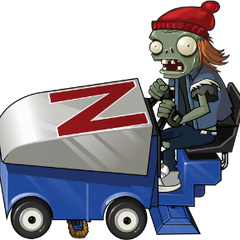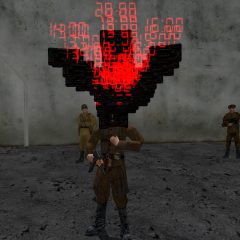This is a copy of a blog that I recently done. Do not worry as this will not be a regular occurrence, I only do blogs once every 2 or 3 years!
Soviet Bunker series: 3 of 3
It is time to end the Bunker series. It has only taken over 8 years to complete 3 simple models...
2009
The first bunker in the series was one of my earliest models and textures. It is pretty bad, and you might be able to tell that I still did not understand how the W3X exporter required that all surfaces have a smoothing group, or else the exporter would assign its own!
At the time I really liked it!
2011
By the time I got around to the second bunker, I had done a bit more modelling and texturing. My unwrapping was a lot better by this time, and I was more efficient in my texture space usage.
I still like this bunker to this day!
= = = = = = = = = = = = = = = =
As I stated in the past, the final bunker in the series will be the actual YR bunker.
With the 2nd bunker in the series, I opted for a sensible alpha mapped based barbed wire. This obviously saved a lot of polygons, however, I never really liked how it looked.
So, stupidly, I plan on modelling the barbed wire this time! Trying to control the poly count will be next to impossible, but I do not intend on using this bunker, so I will press on.
The only major thing that I do now that I never did during the making of the 2nd bunker in the series, is the use of ambient occlusion. This certainly saves a lot of manual shading work, and adds a lot to a texture for very little effort.
= = = = = = = = = = = = = = = =
So before I get to the barbed wire, you can see that as usual I have added a star (on the roof of the bunker). I did the same thing with the second bunker I modelled, it breaks up the roof area, uses a small amount of polygons, and is easy to remove if it bothers anybody down the line.
The barbed wire is obviously taking up most of the polygon count (the helix twirl is 2,244 triangles, the 'spikes' 720!). I will probably smooth the helix later on.
Unwrapping will be easy, I will explain once I get the process done and the screen up!
= = = = = = = = = = = = = = = =
Of course the Hexagon shape meant that dividing the model up to be unwrapped was very simple. The key thing to notice is that the 'spikes' was simplified to only one spike. Nobody would want to go through the chore of unwrapping and stacking 90(!) individual spikes, and that is were using the 3D Max spacing tool comes in handy. It was the spacing tool that I used to place the spikes along the barbed wire helix shape in the first place.
By saving a copy of the helix 'shape', I can use it to replace the spikes in the same position they were in before (you can see the single spike in the right of the image).
In the unwrapped image above, a smaller scale checker pattern means that the unwrapped area is getting a higher ratio of texture space, and the inverse is true of any larger scale checker pattern.
So from this information you will see that brick area is getting more texture space relative to the metal areas.
Because it is a completely different material type, I am OK with this (generally speaking you are encouraged to keep as many things at the same scale, I.e. the same checker pattern size, as possible).
The inner floor area that is quite large, and seems to be getting a lower ratio of texture space, is due to the fact that it has been stacked on top of the roof UV island (which means that when I texture this, the floor area will have the same texture as the roof!).
The reason that I consider this OK is because it will be nearly impossible to see the inner floor area, so giving it its own space on the texture would have been a waste in my opinion (this is part of the whole, using the texture space more efficiently that I mentioned earlier).
I will next either do some greyscale work in preparation for building a normal map. Or I will do a colour and material block-out.
Before I do that though I will have to rebuild the model (which is simple enough).
= = = = = = = = = = = = = = = =
So as you can see the model has been rebuilt, and the basic colours and materials are down.
You can see that I have smoothed the barbed wire.
As always the brick texture is taken from CG-textures website. I never hand 'paint' bricks or concrete textures, I always get them from the mentioned website. Conversely I almost always hand 'paint' metal, and metal edge rust.
This already looks promising, but there is still plenty to do!
= = = = = = = = = = = = = = = =
I have say that I do not like the dark barbed wire, it is too difficult to see. Making it more of a dark grey would work better I think.
Of course this is one of those (many) times when I go against the source material!
Other than that I quite like this. I still prefer the 2nd in the bunker series though.
As you can see it is very difficult to make out the barbed wire at default height, not good at all.
Well here is the usual GIF to round off the bunker series, thanks for your participation!



